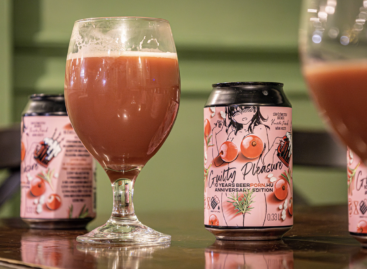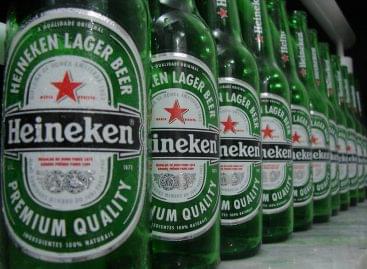Nielsen: We bought half as much beer at the world championship as we did during the two weeks of the European Championship
Two-thirds of Hungarians watch the World Cup in Qatar in company, but many also sit down alone for the sake of a World Cup match, NielsenIQ’s consumer research shows. Fans usually eat beer (sometimes mulled wine) and salty snacks. However, the effect of winter can be seen: during the two weeks of the World Cup, more than 8 million bottles of beer were sold in retail outlets, which is only half of the two-week retail beer consumption of the 2021 European Football Championship.

Following the 2022 FIFA World Cup in Hungary is typical of a narrower segment, according to NielsenIQ’s recent, representative consumer research. Slightly more than a quarter of those surveyed (26%) follow the matches in Qatar, mostly men and households with higher incomes.
According to almost half of the fans (46%), it is more difficult to combine watching matches with other seasonal events (e.g. Christmas markets, holiday preparations) in winter. This may also be the reason that 3 out of 10 World Cup viewers follow fewer matches now than in the previous football World Cup.
“The vast majority cheers in community: two-thirds of match-goers are in a larger group – for example with relatives, friends – and 29% of fans are with their partner. However, every third World Cup viewer watches the matches alone, if they don’t have company.”
– said Erik Vágyi, managing director of NielsenIQ.
Related news
Tesco Sees Revival In Demand For Plant-Based Food Items
🎧 Hallgasd a cikket: Lejátszás Szünet Folytatás Leállítás Nyelv: Auto…
Read more >Hungarian beer magazine celebrates with rosé beer
🎧 Hallgasd a cikket: Lejátszás Szünet Folytatás Leállítás Nyelv: Auto…
Read more >Slovenia’s largest brewery not affected by Heineken Group’s downsizing for now
🎧 Hallgasd a cikket: Lejátszás Szünet Folytatás Leállítás Nyelv: Auto…
Read more >Related news
MOHU: 5,200 return points are in operation, but 47 larger settlements still do not have RE points – public “enema” machines may be introduced
🎧 Hallgasd a cikket: Lejátszás Szünet Folytatás Leállítás Nyelv: Auto…
Read more >GDP growth in OECD member countries slowed to 0.3 percent in the last quarter of last year
🎧 Hallgasd a cikket: Lejátszás Szünet Folytatás Leállítás Nyelv: Auto…
Read more >Change in Rossmann Hungary’s leadership: Kornél Németh decided to move towards new challenges in 2026
🎧 Hallgasd a cikket: Lejátszás Szünet Folytatás Leállítás Nyelv: Auto…
Read more >








